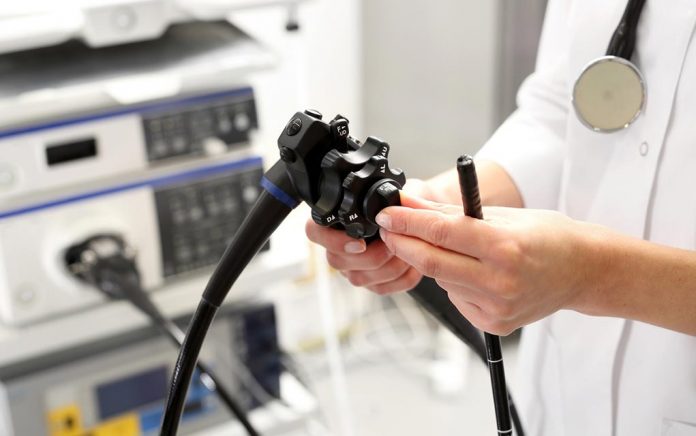
No one looks forward to it, but doctors recommend most people have their first colonoscopy at 45. You want to approach every medical decision with as much information as possible, and you’re right to have some concerns about the procedure. Before you agree to a colonoscopy, make sure you’re asking all the right questions to ensure your informed consent.
Be informed about your colon cancer screening and ask the right questions: Are there alternatives to colonoscopy? Will I be sedated? Are you board-certified? Will I need antibiotics? Can I continue taking a blood thinner? What are your personal stats? What’s my recovery time? Get the details below on these important questions to ask your doctor before agreeing to a colonoscopy.
Ask Your Doctor These Questions Before You Agree to a Colonoscopy.
Are There Alternatives to Colonoscopy?
There are alternatives to colonoscopy, but they aren’t for everyone. People at low risk for colon cancer may be able to screen for polyps using a fecal test like Cologuard or with a virtual colonoscopy. Fecal tests can detect the presence of some precancerous changes, but they’re not foolproof. People who’ve had polyps or colon cancer, as well as those with a family history of colon cancer, shouldn’t rely on fecal tests for first-line screening.
Virtual colonoscopy is a CT scan that creates a 3D image of your colon. It’s very accurate, but has its drawbacks. CT scans use X-rays to construct their images, exposing you to as much radiation as you’d encounter with multiple exposures. This increases your overall cancer risk. CT scans may be able to detect polyps, but they can’t treat them, which means you’ll need to schedule a colonoscopy to have any that are seen removed and biopsied.
Will I Be Sedated?
Colonoscopies can be painful and most doctors will not do them without sedation, which can increase your recovery time. Ask your doctor which drugs they use for sedation and how long each drug can impair your functioning. With most sedatives, you won’t be fit to drive for about 10 hours, so you’ll need someone to drive you from your appointment. You’ll also want to refrain from making any important decisions during that time.
Are You Board-Certified?
Depending on the state you live in, your doctor might not be a board-certified gastroenterologist. To ensure you get the best possible care and receive the most accurate diagnosis, make sure the doctor performing your procedure is board-certified. If not, they may not be as well trained as you think.
Will I Need Antibiotics?
Most people don’t need to take antibiotics for a colonoscopy, but anyone who’s had bacterial endocarditis in the past should take precautionary measures. People with heart murmurs and artificial valves are also at increased risk for infection. Your doctor can prescribe a dose of intravenous antibiotics to be given before your procedure to reduce that risk.
Can I Continue Taking a Blood Thinner?
Most medical professionals recommend you be off all blood thinners at least three to five days before getting your colonoscopy. The doctor performing your procedure won’t be able to remove any polyps if your ability to clot is impaired. There’s also the chance of the colonoscopy tube leaving perforations, which can also trigger uncontrolled bleeding.
You’ll need to see your prescribing doctor to make sure you’re healthy enough to go off your medication. How you do this will depend on the medication and dosage you’re on. Most people can resume blood thinners the evening of their procedure.
What Are Your Personal Stats?
It’s important to know your doctor’s polyp detection rates and how far they’re generally able to navigate the colon. According to Duke University, doctors should catch at least 25 percent of all precancerous growths, and they should also be able to reach the large intestine 95 percent of the time. You should also be aware of any injuries or deaths connected to procedures performed by your doctor.
What’s the Recovery Time?
Recovery is generally quick, the biggest issues involving sedation and possible pain management. Most people feel close to normal as soon as they’re in recovery and are okay to eat and drink soon thereafter. You might experience heavy bouts of gas for a few hours, so plan accordingly.
Odds are you’re eventually going to need a colonoscopy, but when and how often are decisions you and your doctor should make together. Arm yourself with the right questions so you can make your choice an educated one. The right approach to colon cancer screening now could save you a lot of heartache later.
Copyright 2019, AscendHealthy.com













